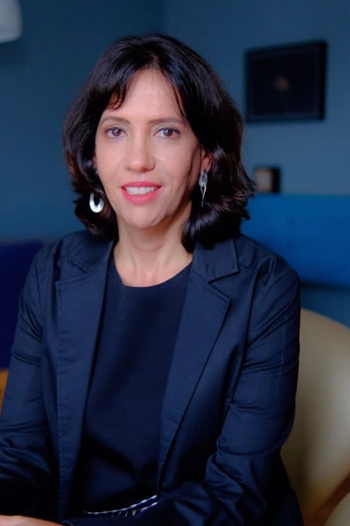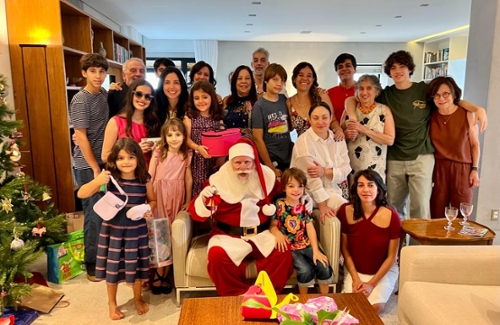Juliana C Ferreira, MD, PhD, ATSF
Associate Professor, University of Sao Paulo, Brazil
ATS MECOR Latin America Director

Three statements about you – two true, one false.
- I am a big fan of scuba diving.
- I went to Japan to play soccer as a member of the medical school team.
- I hiked the Grand Canyon carrying my camping gear in a huge backpack.
Give us your ‘elevator pitch’ biography.
I am a physician-scientist in pulmonary and critical care in Sao Paulo, Brazil, and I am passionate about mechanical ventilation and medical education.
I trained at the University of Sao Paulo Medical School, where I went to medical school and completed my residency and pulmonary and critical care fellowship. After the fellowship, I received a scholarship to complete my PhD project at the Massachusetts General Hospital, where I was a research fellow for 18 months.
In 2003, I was a student in the ATS MECOR program and that experience has shaped my trajectory as a researcher, inspiring me to pursue higher standards in research and teaching. I progressed from student to faculty and now serve as program director in Latin America.
I have been actively involved in the ATS since my fellowship and have served in the MECOR steering committee, the ATS Global Critical Care Working Group, and - in more recent years - as a member of the International Health Committee, as well as the Health Equality and Diversity Committee. In the past few years, I have also become involved with the Section of Medical Education, where I co-chaired the International Medical Education Working Group and served as associate editor at ATS Scholar.
As an associate professor at the University of Sao Paulo, I strive to leverage my expertise to help improve research, education and patient care at my institution and in my country. I am passionate about teaching research methods and mechanical ventilation, and I am fortunate to lead a group of very enthusiastic PhD students. As co-director of the fellowship program in pulmonary and critical care in one of the largest programs in the country, I have been devoted to developing high quality curricula to train the next generation of young pulmonologists.
What would you tell yourself as an Early Career Professional?
I would tell myself to find mentors that are role models to you, and who help you develop different skills and expertise. Foster a network of collaborators who will grow with you.
I would also tell myself to stay true to myself and my mission as a physician-scientist. Sometimes, we might feel like we have lost track of who we are and where we are going; reminding ourselves of our beliefs and our mission is helpful at these moments.
If you weren’t in medicine, and were in a different industry altogether, what would you be?
I was sure I was going to be a biologist/scientist since high school. I love being a physician; it allows me to be a scientist, a teacher, and to care for people. I guess I would have been a happy biologist, too. If not the sciences, I might have been in law. My mother always said I should be a lawyer because I had an argument for everything. One of my sisters is a lawyer and we are very alike. I think I could have been a good lawyer.
What is your favorite way to spend a day off?

Doing activities with my kids and enjoying long meals with family and friends.
What areas of medicine are you most excited to see develop?
I am really excited about how precision medicine might change the way we practice medicine in the near future, allowing us to offer personalized care, while never forgetting to take patients’ values into account. I would also like to see strategies to facilitate the dissemination and implementation of evidence-based practices to improve equitable access to high quality healthcare for all and reducing disparities.
What is one advancement in your field you’d like to see in your career?
The development of innovative, affordable diagnostic and therapeutic approaches to sepsis that could be made available to patients around the globe, including vulnerable populations in low- and middle- income countries.
Which statement did you make up?
That I am a big fan of scuba diving. I have done scuba diving a few times, but I feel cold in the water after a few minutes, so I prefer to stay at the beach, just relaxing and watching the waves!

